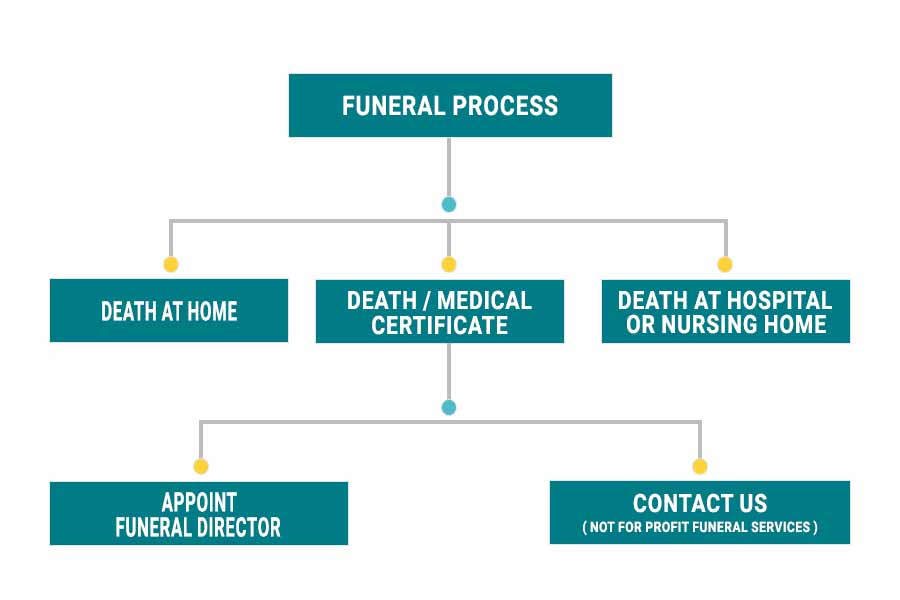Funeral Process
The funeral process carries profound significance, guided by the sacred traditions and rituals of the Muslim faith.
Arrange for the death certificate as well as the medical certificate (medical history) from the hospital, Coroner’s Office, or General Practitioner (GP). This involves liaising with the appropriate authorities to obtain the necessary documentation to legally certify the passing of the deceased.
Purchase and prepare a grave and arrange for interment. This encompasses selecting a grave in a cemetery and ensuring it meets the family’s preferences and religious or cultural requirements. Additionally, preparations for the actual burial site, including the digging of the grave and any necessary logistical arrangements, are made.
Appoint a funeral director. The funeral director serves as a pivotal point of contact and support during the funeral arrangements. Their responsibilities include:
- Transferring the deceased to a mortuary (funeral home) from the location of passing (whether it be a hospital, coroner’s office, care facility, or home) with care and respect.
- Organizing transportation for the deceased via a hearse, ensuring a dignified and appropriate conveyance to the mortuary (funeral home).
- Coordinating with the team who are washing the body and providing a suitable coffin at the mortuary. This may involve liaising with religious authorities or the family to ensure cultural or religious customs are observed.
- Facilitating the transportation of the deceased from the mortuary to a mosque or community center for funeral prayers (Janazah), allowing family and friends to pay their respects and offer prayers for the deceased.
- Arranging transportation from the mosque or community center to the graveyard for burial, ensuring a seamless transition from the place of ceremony to the final resting place.
- Assisting with the selection and arrangement of flowers, as well as coordinating the installation of a headstone or plaque to memorialize the deceased.
- Managing the administrative tasks associated with the passing, including submitting the death certificate to the Register of Births, Marriages, and Deaths, and obtaining certified copies of the death certificate for the next of kin. This process may be complex and time-consuming, particularly if the death was unexpected or required an autopsy.
- Organizing newspaper notices and other announcements to inform the broader community of the passing and details of the funeral arrangements.
- Notifying relevant government departments, such as Social Security or Veterans Affairs, to ensure any entitlements or benefits due to the deceased or their family are appropriately addressed. This involves navigating bureaucratic processes to streamline post-mortem administrative obligations.
A quick summary chart.

